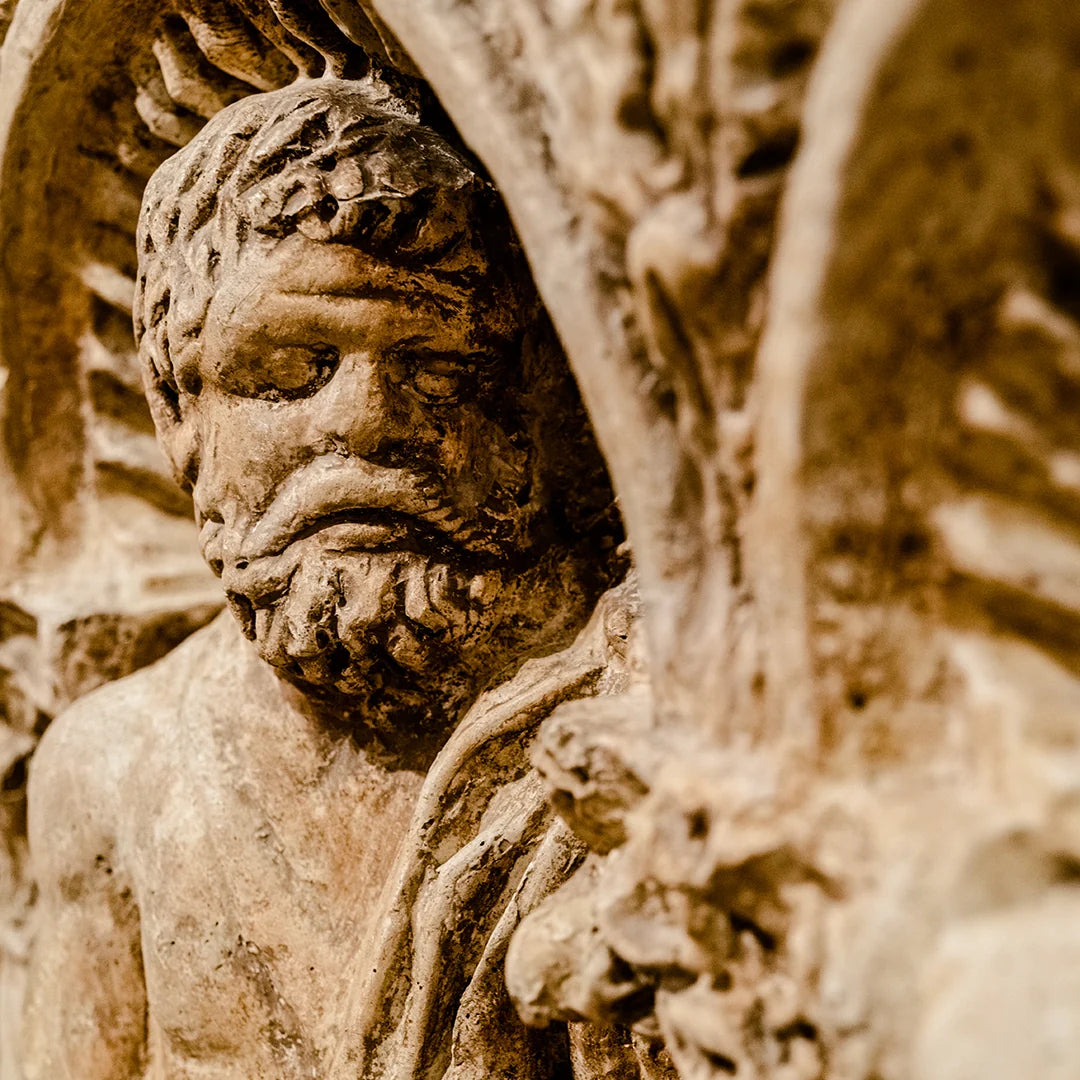
Which Ancient Greek Is Considered the Father of Medicine?
Share
Hippocrates Considered the Father of Medicine?
Hippocrates of Kos, a renowned Greek physician from the 5th century BCE, is widely celebrated as the "Father of Medicine." His revolutionary approach to healing and his contributions to ethical and clinical practices marked a significant shift in how medicine was understood and practiced. While debates persist about the extent of his personal contributions, Hippocrates' influence is undeniable in shaping medicine as a science rooted in observation, rationality, and ethics.
Hippocrates’ Legacy: A Foundation for Modern Medicine
Hippocrates' teachings, principles, and methodologies represent a major milestone in the history of medicine. His ideas moved away from superstition-based healing and laid the groundwork for systematic, evidence-based medical practices. His contributions are immortalized in the Hippocratic Corpus, a collection of approximately 70 medical texts that reflect the intellectual advancements of his era.
Key Contributions of Hippocrates:
-
The Humoral Theory
Hippocrates proposed that health depended on the balance of four bodily humors:- Blood
- Phlegm
- Yellow bile
- Black bile
Though this theory is no longer used, it was foundational in medical thought for centuries and influenced practices in both Eastern and Western traditions.
-
Clinical Observation
Hippocrates emphasized the importance of observing patients over time to understand disease progression. This introduced the concept of evidence-based diagnosis and rational treatment planning. -
Innovative Surgical Techniques
He described methods for treating fractures and spinal injuries, including the use of tools like the Hippocratic ladder and Hippocratic board to manage vertebral dislocations. These innovations were precursors to modern orthopedic practices. -
Hygiene and Epidemiology
Hippocrates linked diseases to environmental factors such as air, water, and location. This understanding laid early foundations for epidemiology and public health. -
The Hippocratic Oath
The ethical principles introduced in the Hippocratic Oath, such as confidentiality and "do no harm," remain integral to medical ethics today, even though the oath has been modernized over time.
Hippocrates: The Symbol of a Collaborative Legacy
While Hippocrates is widely revered, medical historians recognize that his contributions were part of a larger, collaborative legacy. Many works attributed to him in the Hippocratic Corpus were likely written by his students or successors, highlighting the collective effort in advancing medical knowledge during that era.
Other Figures Who Shaped Early Medicine:
- Imhotep (Ancient Egypt): Credited with early surgical and pharmacological practices around 2600 BCE.
- Alcmaeon of Croton: An early Greek physician who explored the role of the brain in sensory perception and health.
- Eastern Contributions: Greek medicine also drew inspiration from Egyptian, Mesopotamian, and Indian traditions, showcasing a shared global evolution in medical practices.
Notable Medical Practices in Hippocratic Medicine
Hippocrates and his followers documented treatments that demonstrated an early understanding of disease management:
- Honey and Vinegar Mixtures: Used for wound care, reflecting an early awareness of antiseptic properties.
- Herbal Remedies: Ingredients such as willow bark, which contains salicin (a precursor to aspirin), were prescribed for pain relief.
- Dietary Therapies: Diet played a central role in Hippocratic medicine, tailored to balance the humors and promote recovery.
These methods emphasized the importance of natural remedies and holistic care, principles that still resonate in modern alternative medicine.
Conclusion: Hippocrates’ Enduring Legacy
Hippocrates’ title as the "Father of Medicine" is both a recognition of his personal contributions and a symbol of the collective progress in early Greek medicine. His work bridged the gap between mystical practices and rational, observational medicine, creating a foundation for ethical and clinical advancements.
Whether viewed as a singular innovator or the figurehead of a collaborative legacy, Hippocrates’ influence endures, inspiring both ancient and modern medical practices.
Sources
Savel, R., & Munro, C. (2014). From Asclepius to Hippocrates: the art and science of healing.. American journal of critical care : an official publication, American Association of Critical-Care Nurses, 23 6, 437-9 . https://doi.org/10.4037/ajcc2014993.
Castelli, H. (2016). What does Hippocrates mean ? The Historiographical Construction of the Greek physician as the ‘Father of Medicine’. , 3, 39-51.
Yapijakis, C. (2009). Hippocrates of Kos, the father of clinical medicine, and Asclepiades of Bithynia, the father of molecular medicine. Review.. In vivo, 23 4, 507-14 .
Kanellou, V. (2004). Ancient Greek medicine as the foundation of contemporary medicine. Techniques in Coloproctology, 8, s3-s4. https://doi.org/10.1007/s10151-004-0095-z.
Demaeyer, P. (2016). [History of pneumology in antiquity (part 2)].. Revue medicale de Bruxelles, 37 2, 116-22 .
Ladda, M., & Lynde, C. (2019). The Father of Medicine on Dermatology. Journal of Cutaneous Medicine and Surgery, 23, 237 - 237. https://doi.org/10.1177/1203475418811358.
